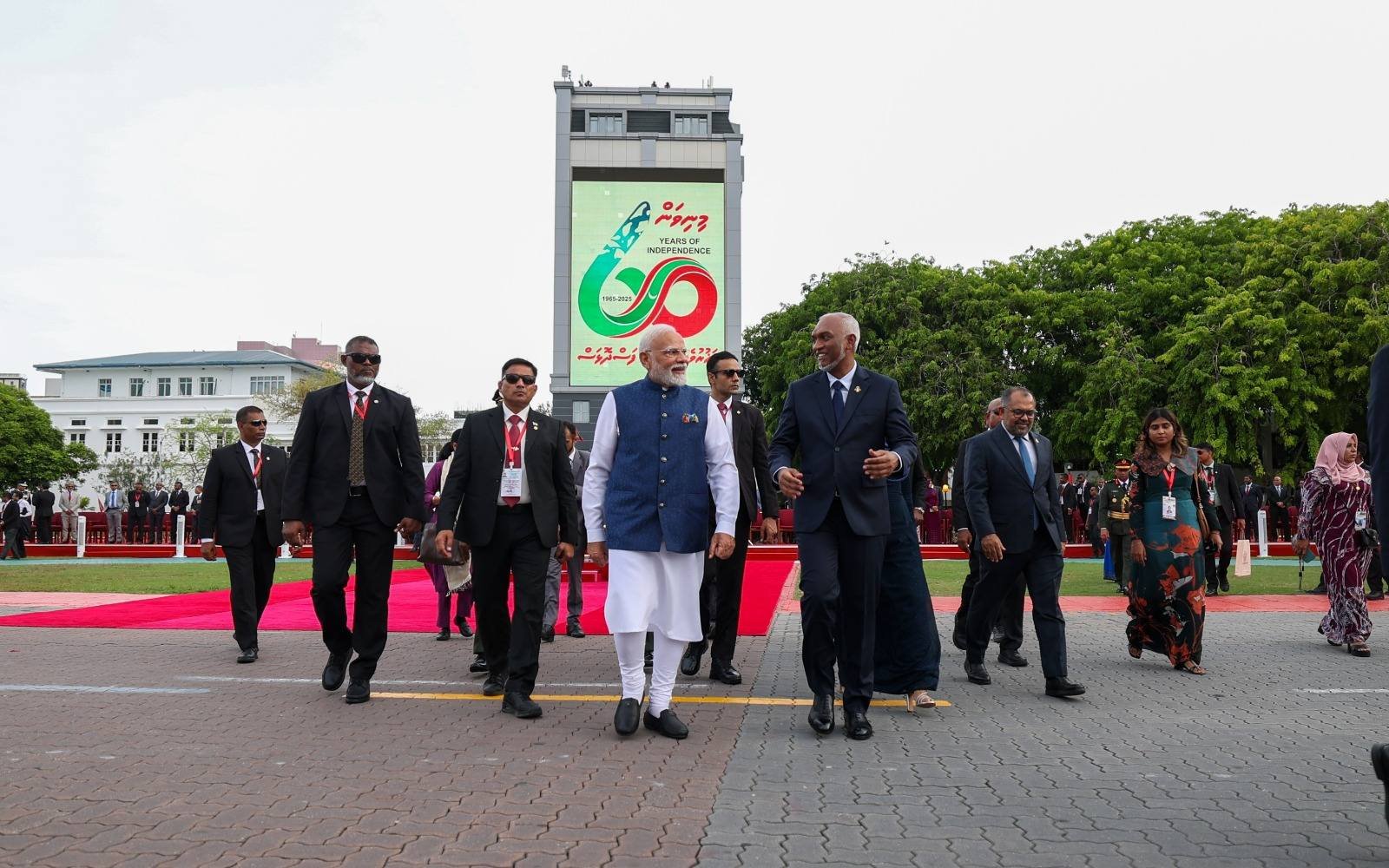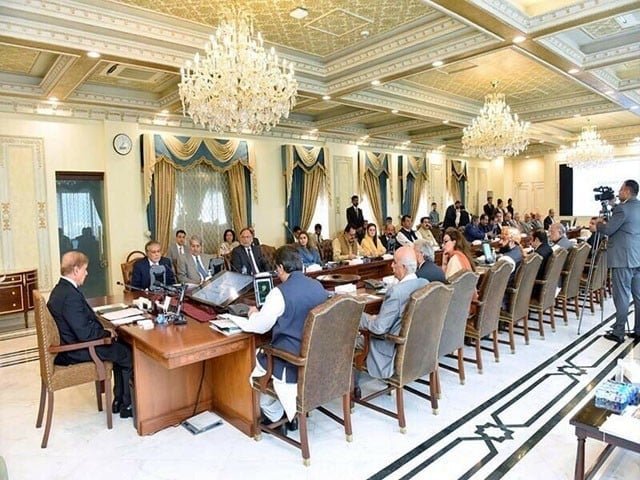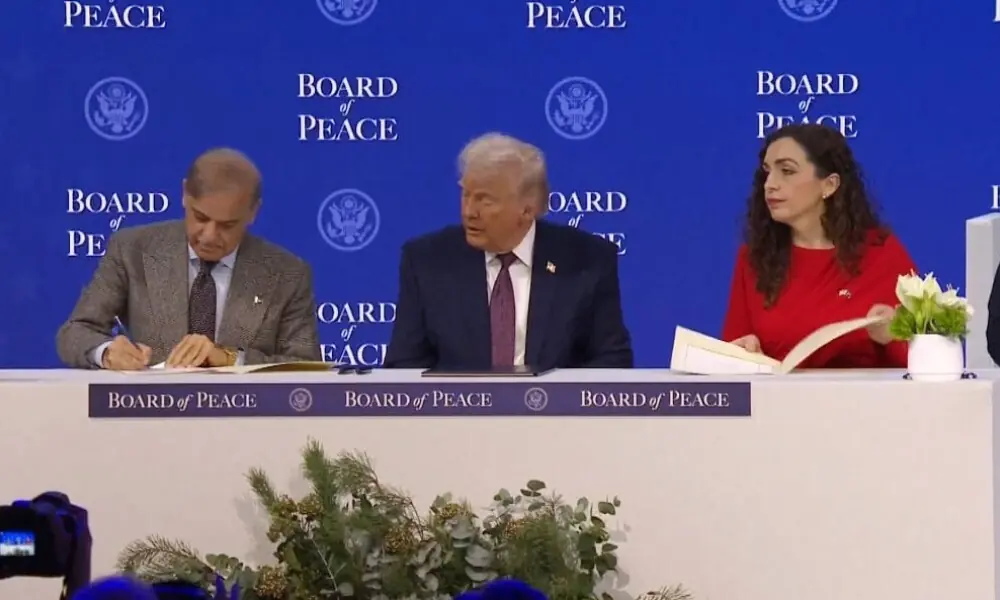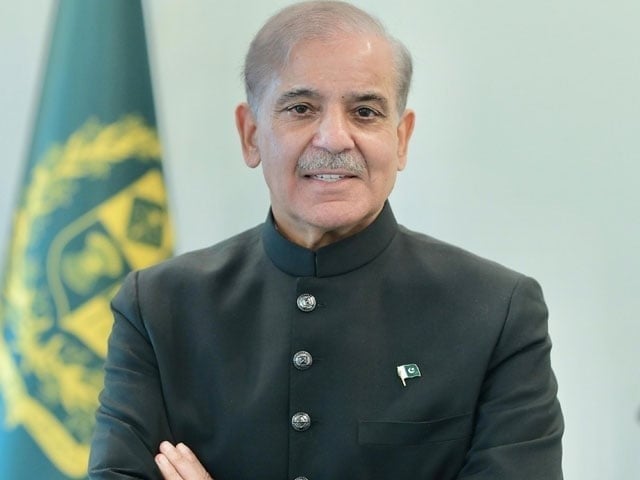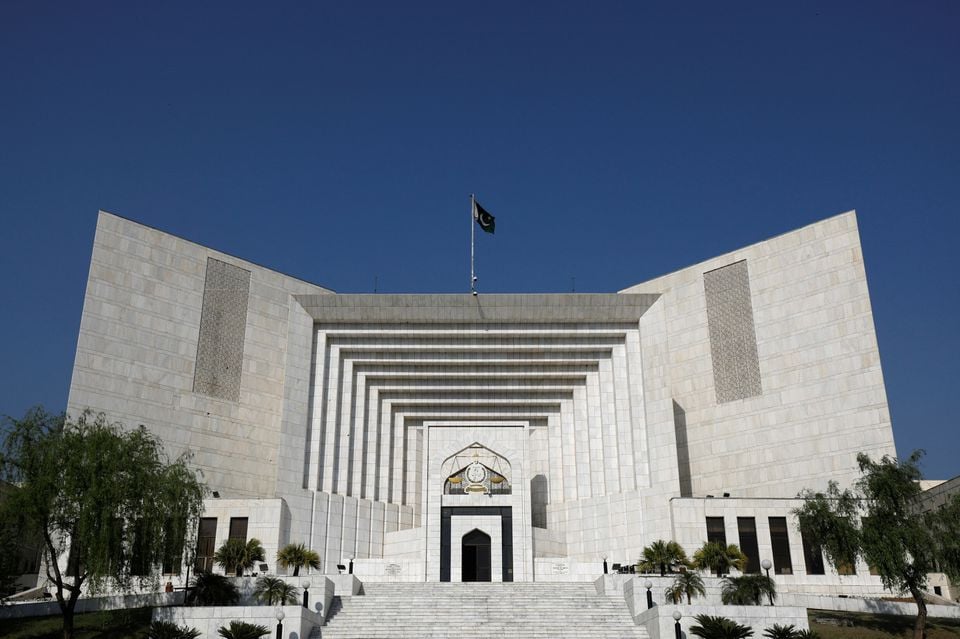Indian Prime Minister Narendra Modi concluded a strategic two-day visit to the Maldives on Saturday, marking a pivotal moment in regional diplomacy by attending the island nation’s 60th Independence Day celebrations and initiating new rounds of cooperation between the two countries. Modi’s participation in the anniversary events — held at Republic Square in the capital city Malé — featured military parades and cultural performances commemorating the Maldives’ independence from British rule in 1965.
This visit was more than ceremonial; it signaled a recalibration in India-Maldives relations after a period of strained ties following the election of President Mohamed Muizzu in 2023. Muizzu, viewed as a pro-China figure, had previously taken a confrontational stance toward New Delhi, pledging during his campaign to remove Indian military personnel from Maldivian territory. While India had deployed those troops primarily for humanitarian and medical support, they were later replaced with civilian technical staff in a bid to de-escalate tensions.
Modi’s visit coincided with the anniversary of the establishment of diplomatic relations between India and the Maldives and was strategically timed to improve bilateral engagement amid a wider regional contest between India and China for influence in the Indian Ocean. During his meeting with President Muizzu on Friday, Modi announced a $565 million line of credit to finance critical development projects in the Maldives — a clear signal of renewed cooperation. Talks also formally began on a proposed free trade agreement, a move aimed at deepening economic ties.
Multiple cooperation agreements were exchanged during the visit, covering vital sectors such as fisheries, healthcare, tourism, and digital transformation. Additionally, Modi oversaw the handover of dozens of Indian-donated heavy vehicles to bolster the Maldives’ defense capabilities.
The Maldives, a small but strategically important archipelago in the Indian Ocean, has become a geopolitical flashpoint in the broader India-China rivalry. Diplomatic friction intensified in recent years when Muizzu prioritized engagement with China, including choosing Beijing for his first state visit as president — a move widely interpreted in India as a diplomatic rebuff. Tensions were further inflamed by Modi’s push to promote tourism in India’s Lakshadweep islands, which some Maldivians saw as a direct challenge to their own tourism industry. This was followed by a wave of online hostility and a boycott campaign led by Indian celebrities.
However, relations have begun to thaw. Muizzu’s attendance at Modi’s swearing-in ceremony for his third term earlier this year marked a shift in tone. Since then, the Maldivian leadership has softened its rhetoric, and diplomatic engagement between the two nations has visibly increased. This renewed outreach is partly driven by growing concern over the Maldives’ economic vulnerabilities, especially its reliance on India for essential imports, medical services, and pharmaceuticals — areas Muizzu previously vowed to diversify away from.



